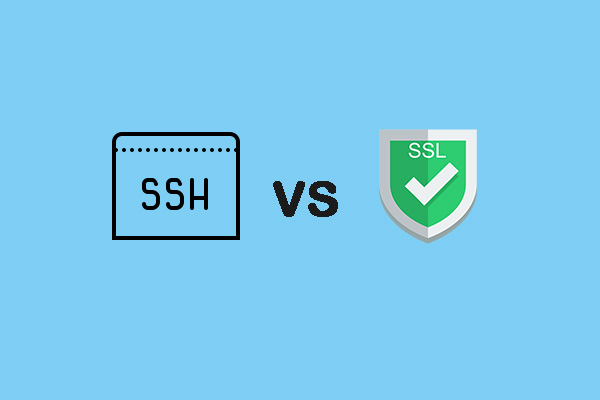When it comes to encrypt and also authenticate data, which passes from one computer to another, SSH and SSL both the technologies help. At a high level, they are similar in many ways, but they offer two very different purposes.
So, it is really important to understand the differences between SSH and SSL. But before we dig deeper into the major differences between SSH and SSL, it will be better if we get some basic idea of what SSH and SSL are along with the SSH key manager.

What Is SSH?
SSH represents Secure Shell. SSH provides a secure way of remotely logging in to another computer and then issuing commands, for example, your website. With the help of SSH tunneling, you can develop an encrypted connection between the client and a website server.
For creating a secure SSH tunnel, one is required to authenticate using either a username or a password. Setting a cryptographic public key or the private key will also do. Once you’re done with the authentication, you can access information securely and via the command line, also can issue commands to the remote server.
What is SSL?
Secure Socket Layer is the original term for SSL. Have you heard of the TLS or Transport layer security? Technically, SSL is the older version of this more modern protocol. But for all practical purposes, we can consider SSL and TLS as the same.
The SSL protocol was primarily designed for protecting the transmission of data with authentication and encryption between two parties. Most commonly, this transmission involves someone’s web browser and the server of the specific website they are visiting.
Indeed SSL helps in authenticating the server, but any authentication from the client is not required here. This is totally different from SSH, where the client’s authentication is always required.
SSH Versus SSL: High-Level Differences
There are two things that you need to keep in mind for SSH and SSL. They are:
- Both help you in creating secure connections.
- Both encrypt the particular data, which passes between two devices.
Now I will tell you the key difference. One uses SSH for building a secure tunnel to another computer, and from this, he or she can transfer data, issue commands, and a lot more.
On the other side, one uses SSL for securely transferring data between two parties. It does not allow him or her to issue any commands, just he or she can do with SSH.
As long as you enabled HTTPS and installed an SSH certificate, everyone who is visiting your website will be able to interact with the server of the site using SSL. in order to access your site; they do not need to authenticate themselves.
On the other hand, the only person who is capable of interacting with SSH will be you, along with other technical users, who have direct access, and are also capable of authenticating themselves with a username and password or a specific cryptographic key.
SSH Versus SSL: More Technical
There are also some technical differences between SSH and SSL which will not be for you if you are a casual user. But for more technical-minded people, they are vital.
| SSH | SSL |
| It runs on port 22. | It runs on port 443. |
| It is totally based on a network tunnel. | It is based on digital certificates. Like an SSL certificate. |
| It is a cryptographic network protocol. | It is nothing but a security protocol. |
| SSH is used to remotely and securely connect to another machine for issuing commands. | SSL is used to transmit data securely between two parties. Usually, these two parties are a visitor of your website and the server of your website. |
| Here the client needs to authenticate with a username and password or a cryptographic key. | Here the client is not required to authenticate; authentication is only required on the server-side. |
Conclusion
So, these are the differences between SSH and SSL. The main purpose is quite similar, but there are differences in operations and technological facts between SSH and SSL if we look deeper. Was that helpful? Do let us know.
Leave a Reply